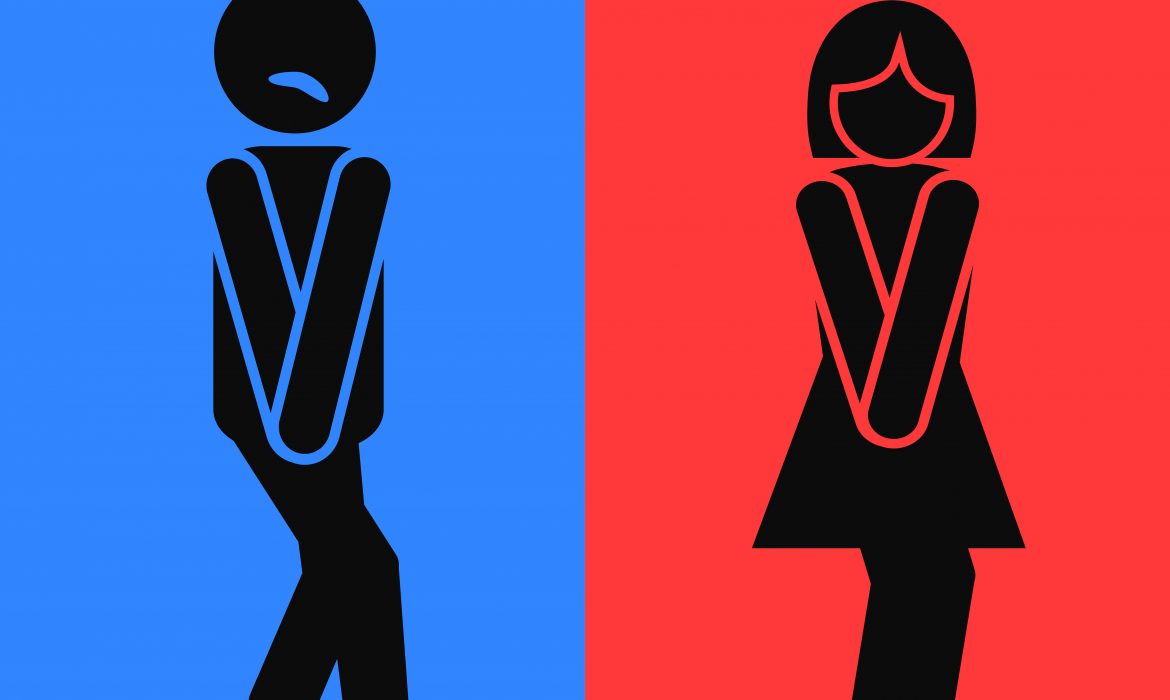Source: Thailand Medical News Nov 24, 2019 6 years, 3 months, 1 week, 22 hours, 3 minutes ago
Approximately more than 310 million people worldwide suffer from
overactive bladders . In the US alone, about 29 million Americans suffer from
overactive bladder, including 40 percent of women and 30 percent of men.

Although there are numerous approved treatments for the condition, but many people don't seek help because they're embarrassed or don't know about therapy options.
In people with
overactive bladder, the bladder muscle squeezes too often or squeezes without warning. This can cause symptoms such as: the need to urinate too often (eight or more times a day, or two or more times a night); the need to urinate immediately; or accidental leakage of urine.
Overactive bladder, urine leakage and bladder control problems can have many possible causes including the following:
Weak pelvic muscles - muscles that have become stretched and weak due to pregnancy and childbirth, which in turn have let the bladder sag out of position and have stretched the opening of the urethra causing urine leakage.
Nerve damage - sending signals to the brain and bladder to empty at the wrong time. Diseases that can cause nerve damage include diabetes, Parkinson's, multiple sclerosis, and stroke. Trauma that can cause nerve damage includes pelvic or back surgery, herniated disc, and radiation.
Medications, alcohol, caffeine - these products can dull the nerves, affecting the signal to the brain, resulting in bladder overflow. Diuretics and caffeine can cause rapid bladder filling and may cause bladder leakage.
Infection - a urinary tract infection can irritate bladder nerves and cause the bladder to squeeze without warning.
Excess weight - being overweight puts pressure on the bladder and contributes to urge incontinence.
Estrogen deficiency after menopause - may contribute to loss of urine due to urgency. Ask your doctor if vaginal-only estrogen therapy is right for you. This is different from "systemic" hormone therapy, which is absorbed throughout the body.
Wrong Sitting Posture –siiting for extended periods of time in a wrong posture can also cause stress on the muscles around the blader region, causing the condition.
Current treatments for
overactive bladder include oral medications, skin patches or gel, and bladder injections.
Dr. Olivia Easley, a senior medical officer with the US FDA Division of Bone, Reproductive and Urologic Products, told
Thailand Medical News, "There are many treatment options for patients with overactive bladder. Not every drug is right for every patient.Patients need to take the first step of seeking help from a health care professional to determine whether the symptoms they are experiencing are due to overactive bladder or another condition, and to decide which treatment is the best.
Typically, anticholinergics are a class of medications widely used to treat overactive bladder. These drugs are believed to work by inhibiti
ng involuntary bladder contractions. A recently approved drug, called Myrbetriq (mirabegron), improves the bladder's ability to store urine by relaxing the bladder muscle during filling.
For females aged 18 and older with overactive bladder, an over-the-counter patch called Oxytrol for Women can be applied to the skin every four days. A skin patch for men is available by prescription only.
For some botox injections are another option. The Botox is injected directly into the bladder muscle, causing it to relax and increase its ability to store urine. Injections can be given a minimum of three months apart. However, Botox may cause serious and potentially life-threatening side effects such as breathing and swallowing problems, according to the US FDA.
The main issue is that anyone having an
overactive bladder should always consult a doctor and get a full examination first as sometimes it can be the symptoms of some serious underlying disease including
diabetes or cancer.
